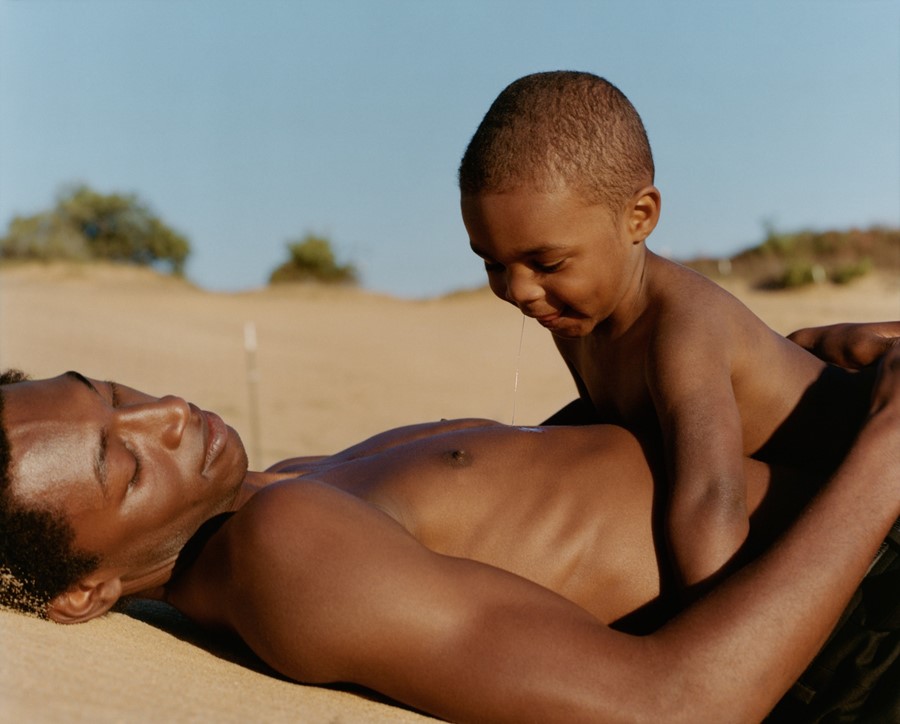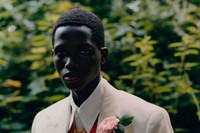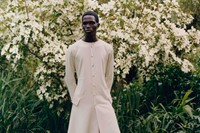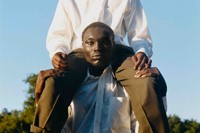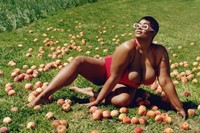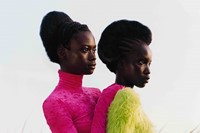“The idea of Black men being intimate still isn’t seen enough,” says the curator of the photographer’s new exhibition, Mark Sealy. “When we portray that, it pushes back against all of those horrible ideas of toxic masculinity”
“Culture doesn’t stand still, it keeps on turning,” says Mark Sealy, curator of Cultural Turns, a new exhibition by the American photographer Tyler Mitchell at Contact Gallery in Toronto, Canada. Mitchell, who is best known for his poetic and profound explorations of Blackness and shifting the narratives around its aesthetics, has created a new body of work that highlights the beauty, presence and self-assurance of Black lives.
Now showing, the exhibition consists of three entities: a display at Contact Gallery, an outdoor installation at Metro Hall, and billboards positioned at the intersection of Dupont and Dovercourt in the Canadian city. Sealy, a cultural historian, worked alongside Mitchell in the selection process, with each photo acting as a visual vessel for a dream-like Black existence that consists of joy, love and ease. “We’ve been talking about representational politics and the Black body and Black subjectivity for a very, very long time. Centuries,” Sealy tells AnOther. “It comes in and out of being ‘en vogue’ and the term ‘cultural turns’ was to help people reference this idea that we’re not new to this conversation. Tyler is part of a long arc of artists who have been trying to bring a certain sensibility and sensitivity to understanding Black lives and Black presences.”
As well as the body, environment and escapism are two clear themes throughout the exhibition, with romantic blue skies and Georgia’s vibrant country parks as backdrops. “There are some very lovely moments: the big shirt in the desert, the countryside, the families all sitting by the lake, side by side. Those images all portray a sense of home and security,” says Sealy. His favourite is a portrait of two brothers, the eldest laying down with his little brother leaning over on his bare chest. “The saliva drips from the young child’s mouth onto the chest of his older brother and it’s a form of connectivity that is just really beautiful,” he says of the image. “It’s nice that it’s a really young boy and an older man being intimate in that space, because the idea of Black men being intimate still isn’t seen enough. When we portray that, it pushes back against all of those horrible ideas of toxic masculinity.”
Prior to their collaboration, Sealy was familiar with Mitchell’s work – it’s hard not to be. In 2018, he made history as the first Black photographer to shoot a cover of American Vogue, capturing Beyoncé’s for the September issue. Then followed his first solo exhibition, I Can Make You Feel Good, at Foam Fotografiemuseum Amsterdam in 2019 before it travelled to the International Center of Photography a year later in 2020 – the same year he was awarded the Gordon Parks Fellowship. His success, Sealy suggests, speaks volumes about the cultural turn we’re currently experiencing in the art and photography world; one that feels slightly different from those in the past, and allows artists to have more of a say over their creations and the themes they choose to highlight. “The impact of social media is huge. I think that’s the biggest change this time,” he says. “A decade ago, it wasn’t there in the same way. Decades before that it wasn’t there at all and you had to be there, physically, to see this. Things couldn’t be amplified in the same way that they are today, where it is possible for people like Tyler to be in control, or in the ‘cultural turn’, with much more autonomy.”
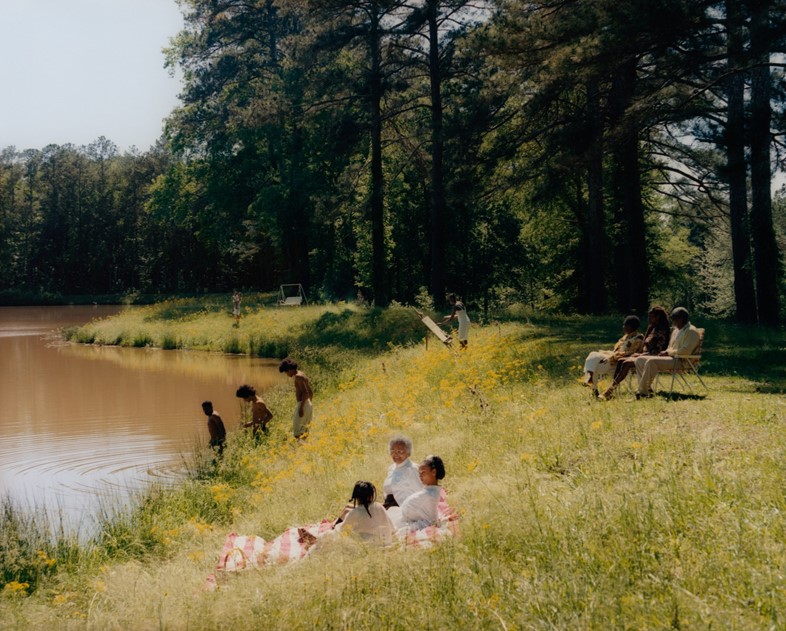
This artistic freedom is exactly what can lead to impactful societal changes, creating opportunities for life to imitate art – particularly when it comes to dismantling limitations and systemic views on Black lives and what the Black experience looks like. “What I want people to take away from this exhibition is anything that breaks down the stereotypical representations of Black life – and Tyler does that work,” says Sealy. “He moves the cultural turn along to a different kind of dynamic, one that allows you to see that there are multiple ways of being in the Black experience.”
Cultural Turns by Tyler Mitchell is on at Contact Gallery in Toronto until June 30.
